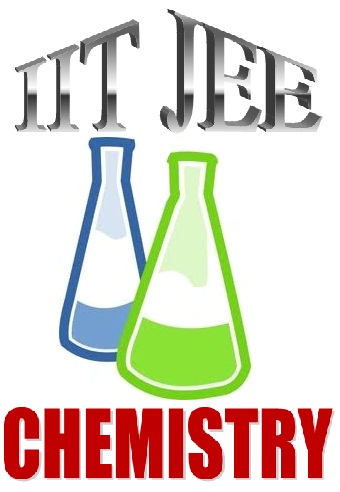9 Best Tips for Chemistry to Crack IIT-JEE
 Chemistry is a hot favorite subject for students who wish to score well in any competitive exam. It is not only a scoring subject, but also guarantees success in IIT-JEE. The best thing about Chemistry is that most of its questions in IIT-JEE are not tweaked to confuse students.
Chemistry is a hot favorite subject for students who wish to score well in any competitive exam. It is not only a scoring subject, but also guarantees success in IIT-JEE. The best thing about Chemistry is that most of its questions in IIT-JEE are not tweaked to confuse students.
Students normally don’t pay much attention to topics like s, p, d, and f-block elements. These topics are not only easy to learn, but also come up every year in IIT-JEE. However, students ignore them from their preparation strategies completely.
If students solve questions from previous 10 year question papers chances are high that they will crack the exam.
Let’s take a look at a number of topics in Physical, Organic, and In-Organic Chemistry that come up every year in IIT-JEE and, thus, must be prepared by students.
Topics covered in Physical chemistry
- Basic Concepts
- Mole Concept
- Redox Reactions
- Stoichiometry
- Gaseous and Liquid states
- Atomic structure
- Chemical Bonding
- Chemical Energetics
- Chemical Equilibrium
- Ionic Equilibrium
- Electrochemistry
- Chemical Kinetics
- Solid State
- States of Matter
- Solutions & collegative properties
- Surface Chemistry
Topics covered in organic chemistry
- Basic Concepts
- Nomenclature
- Isomerism
- Reaction Mechanism
- Saturated hydrocarbons
- Alkenes and alkynes
- Reactions of benzene
- Aromatic compounds
- Alkyl halides
- Alcohols and ethers
- Aldehydes and Ketones
- Carboxylic acid and their derivatives
- Amines
- Carbohydrates, amino acids and peptides
- Uses of some important polymers
Topics covered in In-organic chemistry
- Basic Concepts
- Extraction of elements
- Hydrogen
- S and P Block Elements
- d and f-Block elements
- Coordination compounds & organometallics
- Qualitative Analysis
Now with all the aforementioned topics in mind, we should prepare for the subject exam accordingly.
We have brought you tips for chemistry to crack IIT-JEE. Check them out:
Tips for chemistry
1. Every year in JEE, 40-45% questions come from Physical, 25-30% question come from inorganic and rests come from organic chemistry.
2. Use flow charts to understand chemistry, check below image for sample:
 3. Questions on topics like atomic structure and chemical bonding are really important and come every year in JEE examination. Hence, students must prepare a table covering essential data to be used.
3. Questions on topics like atomic structure and chemical bonding are really important and come every year in JEE examination. Hence, students must prepare a table covering essential data to be used.
4. Students must pay extra attention on electrochemistry particularly relating to cell reactions, EMF, Oxidation-reduction half cells and standard potentials.
5. Extraction of Ag and Au by cyanide process is another key topic from which questions are often asked. Oxides and oxyacids of N, P, halogens, S are important from the point of view of oxidation states of elements, strength of oxyacids and their oxidising properties.
6. Coordination compounds and extractive metallurgy are two major areas in inorganic chemistry. Emphasis is laid on the hybridization and geometries and magnetic properties of complexes. Extraction principles like self- reduction, electrolytic reduction, carbon reduction involving the elements Cu, Pb, Mg, Al, Fe and Sn are very important.
7. Pick up one good chemistry textbook instead of jumping from one book to the other.
8. Organic chemistry needs lots of practice, however, boring it might seem.
9. Inorganic chemistry can become easier if the study of block elements is taken seriously.